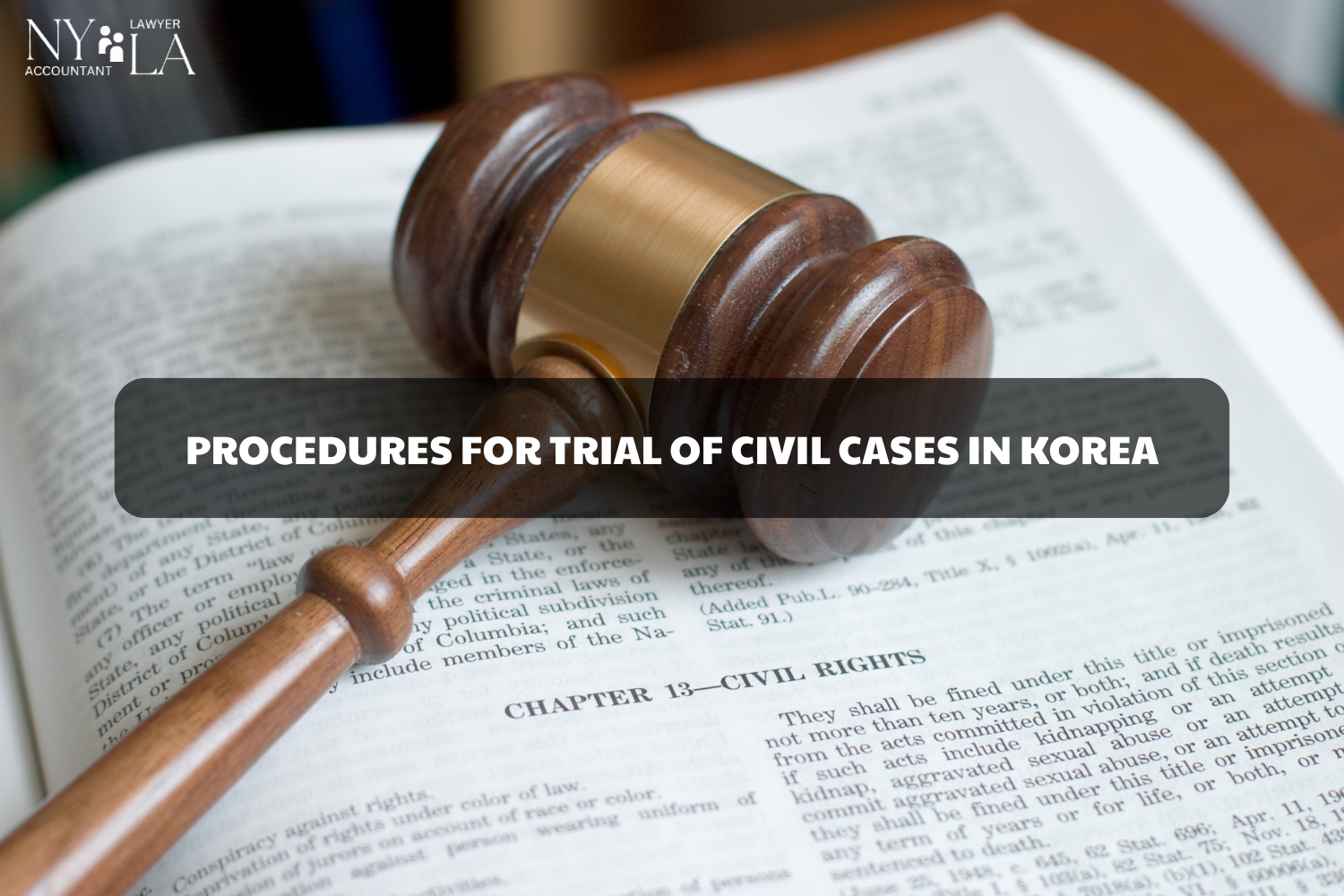Summary
1. Overview of Civil Litigation Korea
Civil litigation Korea refers to the formal legal process used to resolve disputes related to personal rights, property, and obligations under civil law in South Korea. As one of the most dynamic legal systems in Asia, Korea has made great strides in modernizing its judicial procedures—especially in the civil sector. Spearheaded by reforms from the Supreme Court, civil litigation in Korea is now more transparent, accessible, and technologically advanced.
This process begins when a plaintiff—or their legal representative—files a written complaint with the competent Court. The complaint outlines the nature of the civil dispute, including the claim and requested remedies such as financial compensation or specific performance. Once submitted, the Court delivers a copy of the complaint to the defendant, who must respond in writing within 30 days. If the defendant fails to respond within the given timeframe, the Court may issue a default judgment, effectively ending the case without a trial. This mechanism ensures the timely progression of civil litigation in Korea and protects the interests of the party who initiates the case.

2. Legal Procedure and Support Systems
If the defendant provides a written response, the case proceeds to the next stage. Both parties are summoned to Court to explain their positions, present evidence, and examine witnesses. Hearings in civil litigation Korea are well-organized and serve as a critical opportunity for oral statements and direct interaction with the judge. These sessions help clarify complex issues, highlight inconsistencies in the opposing side’s claims, and ultimately shape the judge’s understanding of the case.
Legal representation plays a vital role in this process. In most civil trials, parties are represented by attorneys who are well-versed in Korean civil procedure and local judicial practices. However, for cases overseen by a single judge—typically less complex disputes—the Court may permit representation by a non-lawyer, particularly when financial limitations exist. This is supported by Korea’s national legal aid system, which assists those who cannot afford legal representation by covering attorney fees and other litigation costs. This commitment to fairness and accessibility ensures that civil litigation in Korea remains inclusive.
To further enhance procedural efficiency, Korea has integrated advanced technology into its court system. The Electronic Case Filing System (ECFS) allows litigants and attorneys to file petitions, submit documents, receive Court notices, and access case records online—eliminating the need for physical visits to Court. The ECFS significantly reduces delays and administrative burdens in civil litigation Korea.
Another innovation is the court recording system, which records all oral arguments, testimonies, and interrogations during a hearing. This move away from traditional handwritten minutes increases transparency and accuracy, and allows for better post-hearing analysis. These recordings are particularly useful for appeal cases and judicial reviews, helping to ensure the integrity of the litigation process.
3. Transparency, Fairness, and Future Direction
One of the core principles behind civil litigation Korea is the protection of litigants’ rights through procedural fairness and transparency. From the early filing stage to the final ruling, every aspect of the process is designed to minimize ambiguity and ensure accountability. The timely exchange of documents, public access to legal records, and use of digital tools have collectively improved the overall litigation experience for all parties involved.
Moreover, the Korean judiciary is proactive in addressing potential violations of litigants’ rights. If a party’s rights are threatened during the litigation process, the Court can intervene to remedy the issue. This may include extending deadlines, granting additional time for evidence collection, or offering legal aid. By supporting both procedural flexibility and strict legal standards, civil litigation in Korea upholds the rule of law while adapting to the needs of a modern society.
As Korea continues to digitize and modernize its judicial infrastructure, the future of civil litigation Korea looks promising. The combination of legal reforms, accessible legal aid, and user-friendly court technology means that individuals and companies can resolve disputes more efficiently than ever before. Whether you are a Korean national or a foreign investor, understanding and engaging with the civil litigation system is crucial for defending your rights and navigating complex legal challenges.
4. About NYLA – Korean Legal Office

■ NYLA – Your Trusted Legal Partner in Korea
At NYLA, we understand that the success of foreign businesses in Korea requires not only a solid business strategy but also reliable legal support. With a team of experienced Korean attorneys and legal professionals, NYLA provides tailored legal services for companies, investors, and individuals operating or planning to establish a presence in Korea.
We support our clients throughout the entire business journey with comprehensive services, including:
- Legal consultation on company establishment, taxation, and immigration;
- Advice on commercial real estate, franchising, and product distribution;
- Support in human resources, marketing, and business strategy.
In addition to legal advisory, NYLA also represents clients in civil litigation cases related to business, labor, marriage, family, and inheritance to ensure their rights and interests are fully protected.
■ Contact NYLA

If you’re a foreign business or individual looking for a reliable legal partner in Korea, NYLA is here to help. We are committed to delivering effective, practical, and personalized legal solutions for every client.
With a proven track record of assisting hundreds of international clients, our team is equipped to help you navigate complex legal challenges—whether it’s commercial disputes, contract issues, or foreign investment guidance.
Don’t let legal matters hold you back. Let NYLA be your trusted guide in the Korean market.
■ Get in touch with NYLA for expert legal support
| Website: https://nylakoreanlegal.com/
FB: https://www.facebook.com/nyla.koreanlegal Tiktok: https://www.tiktok.com/@nylakoreanlegal Youtube: https://www.youtube.com/@NYLA-xd8qx Email: info.NYLAkoreanlegal@gmail.com SĐT: +82 10-3415-7859 |
 |






















































